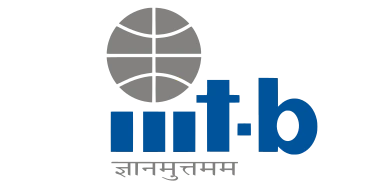Upskill in technology with our online Software Development courses from leading universities. Master in-demand tech skills and kick-start your career in software development.




Applications and software have become an important part of living in this ever-evolving era of digital evolution and global connectivity. Software is not just the base for the hardware to perform the input and output functions; rather, it’s the amalgamation of programming, documentation, and licensing.
Software engineering is the practice that concerns the design and development of computer systems and applications software. The computer systems software deals with applications such as operating systems and computer utilities. Application software, on the other hand, would include web browsers, database programs, and such other user-focused tools.
Software engineers apply engineering principles to create software with profound knowledge not only in programming languages but also in the development of software and computer operating systems. Software engineers are being hired to work for single apps or programs but for big and complex software systems. Explaining it briefly, the software engineer develops software applications and participates in their development process very frequently. But development is just a single part of it.
Software engineers have a wide range of job opportunities in this world, where applications and web development are becoming important; that might entail a huge range of job options for the upcoming software engineers. The day-to-day tasks of a software engineer involve:
Access the various career developement support services to help you achieve your professional goals.
Benefit from exceptional guidance provided by industry mentors, teaching assistants, and graders. You will also receive one-on-one feedback on your submissions, along with personalized insights to help you improve and refine your skills.
Experience timely doubt resolution with the help of industry experts and peers. All responses are 100% expert-verified, ensuring a high-quality learning experience throughout your course.
Receive personalized expert feedback on your assignments and projects, helping you refine your skills and knowledge. Additionally, participate in regular live sessions with experts to clarify any concept-related doubts and deepen your understanding of the material.
A software engineering degree trains the students to create the software from scratch. This includes developing the architecture of the software, the build, the programming, and the need of a business. On the other hand, a software programming course primarily focuses on developing functional codes for software.
Being a software engineer means you need to work with programming computer software in ways so that the program can understand the input and provide the desired output. This is possible when you know the language of the computers. Currently, as a software engineer you should have a proper hold on at least 5 out of the following programming languages:
SQL
Java
JavaScript
C#
Python
PHP
IOS
Ruby
Scala
LISP
Perl
MATLAB
C++
Groovy
Shell
TypeScript
Visual Basic.Net
Objective C
Delphi/Object Pascal
Assembly Language
Swift
Go
R
OCAML
Haskell
IoT or the Internet of Things deals with how devices interact with each other via sensors. When sensors are installed in a device and connected with software, you can remotely control the device. The gyroscope sensor present in a mobile phone acts as a compass. With software engineering, IoT devices are also used as data collection devices that are further used to duplicate real-world situations.
No, all game developers are not software engineers. Game development can be treated as an undergraduate program. But, software engineering can lead to a student taking up game development as a specialization.
Being an advanced degree, the subjects taught in the MTech software engineering course are:
Probability and Stochastic Process
Software Architecture and Testing
Research Methodology and Technical Communication
Software Quality Engineering
Advanced-Data Structures and Algorithms
Electives
Advanced Database Management System
Mathematical Logic
Software Design
Advanced Programming and Technology Lab
Modelling and Verification Lab
A career in software development offers exciting opportunities to shape the future of technology. It allows you to work on innovative projects, solve complex problems, and make a meaningful impact across industries. Software development and engineering courses provide the essential skills needed to thrive in this dynamic field and drive technological advancements.
Enrolling in an online software engineering course offers several advantages, including the opportunity to acquire in-demand skills in areas like software programming, design, and development. These courses, ranging from introductory to advanced levels, provide a well-rounded understanding of the field, combining theoretical knowledge with practical experience. By completing such courses, you can prepare for various roles in the tech industry and gain access to a wide range of career opportunities.
Online software development courses typically cover widely used programming languages like Java, Python, C++, and SQL. These languages are chosen for their versatility and relevance across various areas of software development, including web and mobile app development, data analysis, and machine learning. The specific languages taught may vary depending on the course’s focus and its level of complexity.
Yes, it is possible to become a software engineer after completing a BCA. A BCA provides a strong foundation in computer applications, and by further specializing through a software engineering course or gaining practical experience through internships or personal projects, you can build a successful career in software engineering.
The syllabus of an online software engineering course typically includes topics such as programming, software development methodologies, artificial intelligence (AI), cybersecurity, cloud computing, and mobile app development. These courses, which can range from certifications to full software engineering degrees, provide both theoretical knowledge and practical skills. By completing these courses, students are equipped to pursue tech roles such as software developers and engineers.
The fees for software engineering training programs are influenced by several factors, including the type of institution (public or private), the duration and complexity of the course, the level of certification or degree offered, and any additional resources provided (such as access to specialized software or lab facilities). Specialized courses, such as those focused on software engineering and architecture or MSc software engineering, tend to have higher fees due to their advanced content and the expertise of the faculty involved.
Yes, there may be additional costs in online software development courses, such as expenses for textbooks, software licenses, or tools required for the course. In some cases, there may also be travel expenses for in-person sessions, exams, or workshops. It’s important to review the course details carefully to understand all potential additional costs before enrolling.
Yes, many institutions offer the option to pay software and tech course fees in instalments. This flexible payment plan can help students manage their finances more easily while pursuing their educational goals.
Chat with us



